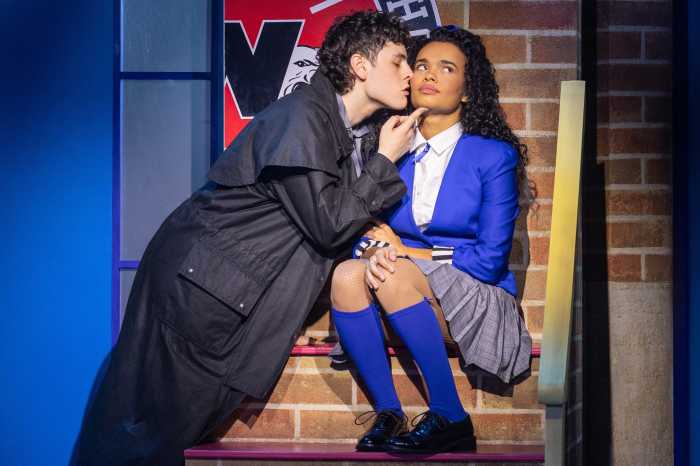When was the last time you saw a new play that was written in iambic pentameter, or a futuristic fantasy about real-life, still-living political figures?
Mike Bartlett’s “King Charles III,” a critical and commercial hit in London, audaciously applies the conventions of the Shakespearean history play to today’s British royal family, who are portrayed immediately after the death of the currently reigning 89-year-old Elizabeth II.
Dramas about the English monarchy are nothing new to Broadway, which saw the arrival of “Wolf Hall” (about Henry VIII and his wives) and “The Audience” (about Elizabeth II) earlier this year.
The figures depicted in “King Charles III” should be familiar to American audiences thanks to TV and tabloids. Charles, on the verge of his coronation, refuses to sign off on a bill passed by Parliament to limit freedom of the press out of principle. When the country’s political leaders threaten to do away with the royal assent requirement altogether, which has always been purely ceremonial, Charles cites an antique precedent and dissolves Parliament, leading to chaos.
William, initially so passive, is urged by his savvy wife to stand up to his father; and Harry, who has been making late-night trips to Burger King out of depression, gets involved with a racy art student.
Under the smooth direction of Rupert Goold, “King Charles III” is an entertaining, provocative, highly stylized thriller. Personally, I wouldn’t mind seeing more playwrights experiment with age-old devices and apply “what if?” scenarios to contemporary politics.
Tim Pigott-Smith is fully animated as Charles, depicting his tragic journey from pondering figurehead to dangerous autocrat. It’s the kind of performance you’d call Shakespearean in scope.
“King Charles III” plays at the Music Box Theatre (239 W. 45th St.) through Jan. 31.





































